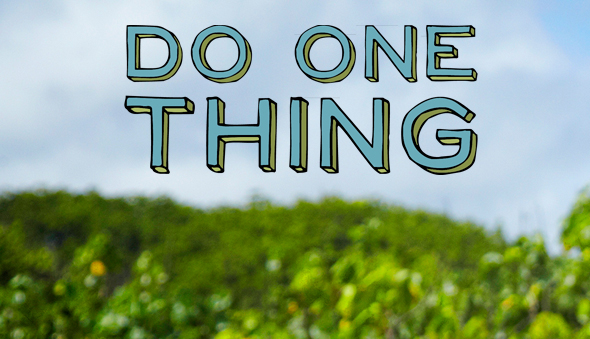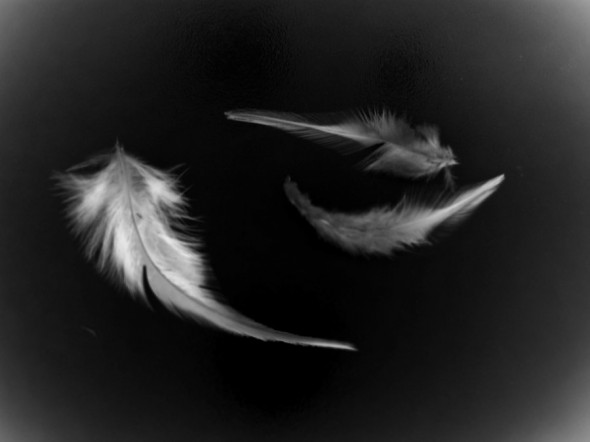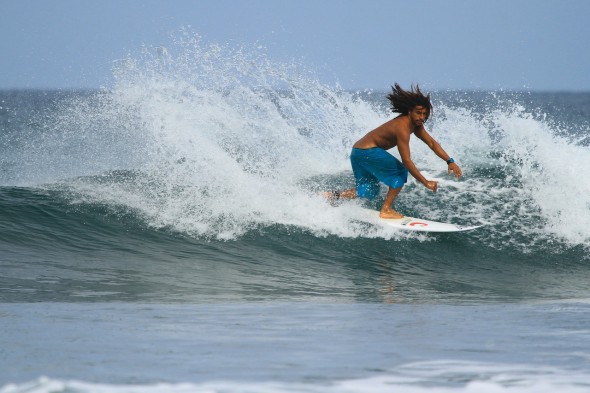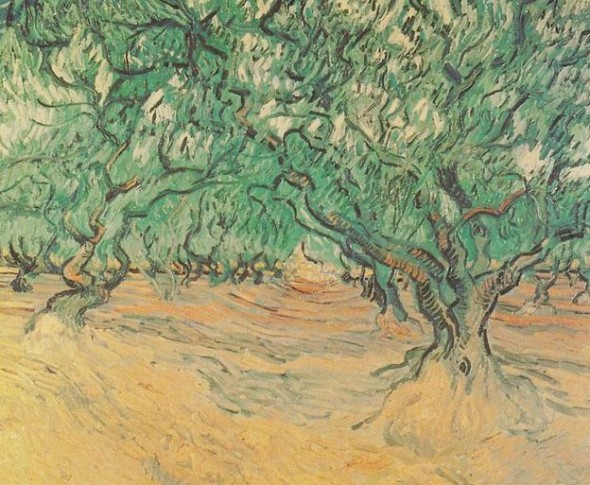 Designers are re-thinking the way we create and consume fashion, which is currently the world’s second most polluting industry and our second largest user of water—as well as one of the most exploitative of its workers. But imagine if you could drop last season’s jacket into a machine that would reconstruct its fibers into hipster pants straight off the runway–you’d never have to buy new again, right? That’s the vision behind Electroloom, a 3D printer currently in development that debuted its concept at SXSW Eco this year.
Designers are re-thinking the way we create and consume fashion, which is currently the world’s second most polluting industry and our second largest user of water—as well as one of the most exploitative of its workers. But imagine if you could drop last season’s jacket into a machine that would reconstruct its fibers into hipster pants straight off the runway–you’d never have to buy new again, right? That’s the vision behind Electroloom, a 3D printer currently in development that debuted its concept at SXSW Eco this year.
Blog
Reimagine Fashion
Louis Ducoudray
Louis Ducoudray is the author of the short story collection El agua secreto, for which he won the Premio Nacional Aquileo J. Echeverría in 1976. The author is also one of the founders of modern architecture in Costa Rica.
His story “Here” is a strange, Orwellian-like science fiction in which “the wings”–“two wings joined together without a trunk, without eyes or a head, without feet and without a tail”–do not sleep. The wings “spend the night moving in a nervous flutter that scares the mosquitoes,” creating a whirlwind and a constant storm of dust that causes all of the people to sleep face down so the dust does not enter their noses and mouths as they sleep. Along with the wingbeats of these strange creatures, the reader gets a sense of how the people are treated by the Company that commands them and how they spend their time, living day after day in lives that are far beyond their control.
Ducoudray’s story is translated by Barbara Ras, the editor of Costa Rica: A Traveler’s Literary Companion. In addition to her work as translator and editor, Ras is also a prize-winning poet, and her collections of poetry include Bite Every Sorrow and One Hidden Stuff.
Photo Credit: Deviant Art / CC BY-SA 3.0
Source: Ras, Barbara, ed. Costa Rica: A Traveler’s Literary Companion. San Francisco: Whereabouts, 1994.
Dormilona
Closing up shop when the sun goes down, the Dormilona has the interesting ability to fold up its leaves when night falls. Loosely translated to “sleepy-head”, this plant will also quickly tuck itself in when touched or shaken, providing a rather entertaining distraction for kids and adults alike. Native to Central and South America, the Dormilona’s rapid movement is the result of a chemical response to stimuli in the stems. Water is forced out of the plant cells, causing a loss of pressure and rigidity and resulting in the ‘collapse’ of the leaves. This trait is thought to have evolved in order to help the Dormilona fend off the more skittish herbivores nosing around for a meal. Judging by one of its other common names, the touch-me-not, it seems that this sensitive plant also enjoys simply having a little bit of personal space.
Video courtesy of Evan Markman
Fabián Dobles
Fabián Dobles is featured twice in Costa Rica: A Traveler’s Literary Companion, and both stories show how disagreements can divide family or close friends.
His first story, “The Targuá Tree,” begins at the hearth of a dying fire as an old man arrives to make amends with his brother, whom he has not seen in forty years. The story is centered around the targuá tree, which sits at the top of a hill where the brothers have inherited farmland from their father. The tree itself is the cause of an argument that estranges the two. Dobles delivers a punch at the end of the story to show the result of their disagreement, though the author nevertheless delivers the message that time heals all wounds.
His second story in the collection, “The Diary,” jumps back and forth between the diary entries of two friends, H.R. Sandiford and E.L. Forrester. The comical collection of what each says about the other keeps the reader entertained through the business ventures of the two men. But then, “in the midst of banana trees, dreams, dehydrators, and idle days – the plot thickens…” Ultimately, it isn’t their banana business that divides the two men, but something else.
Fabián Dobles writes fiction, poetry, and nonfiction, and his work “expresses a vision of rural Costa Rican life, dramatizing the life and themes of the common people.” He is the author of Los años, pequeños dias, Historias de Tata Mundo, and Ese que llaman pueblo. Both stories are translated by John Incledon, who has also translated Farabeuf by Salvador Elizondo and Day of the Winged Lion by Mario Luis Rodríguez.
Photo Credit: Wiki Commons
Source: Ras, Barbara, ed. Costa Rica: A Traveler’s Literary Companion. San Francisco: Whereabouts, 1994.
Pour Some Sugar On Me
 If you’ve ever visited a supermarket, you’re familiar with the vast quantity of drinks and foods labeled “sugar-free.” However, just because a food registers lower in calories doesn’t mean it will help you lose weight: Researchers at the University of Texas found people who drink diet soda were 70% more likely to be overweight. Drinking two or more diet sodas each day actually made subjects five times more likely to gain weight, theoretically because artificial sweeteners inhibit the brain cells that make you feel full.
If you’ve ever visited a supermarket, you’re familiar with the vast quantity of drinks and foods labeled “sugar-free.” However, just because a food registers lower in calories doesn’t mean it will help you lose weight: Researchers at the University of Texas found people who drink diet soda were 70% more likely to be overweight. Drinking two or more diet sodas each day actually made subjects five times more likely to gain weight, theoretically because artificial sweeteners inhibit the brain cells that make you feel full.
And sugar-free foods could actually be dangerous: Saccharine, a coal tar derivative, has long been suspected of links to cancer, and aspartame converts to formaldehyde in your body, according to the FDA. Yummy. Food and drinks sweetened with organic sugar, agave or stevia are a far better bet. In moderation, of course.
“She Wore a Bikini”
Alfonso Chase has a second story in the collection Costa Rica: A Traveler’s Literary Companion. “She Wore a Bikini” tells the tale of the missing Adelita González, who may or may not have been wearing a bikini when she was last seen on the beach of Costa Rica’s southern Pacific coast. The narrator of the tale begins and ends the story with, “We all know about the Adelita González affair. It all came out in the papers, and for several weeks everyone was talking about the case.”
In addition to the narrator’s account of the missing woman, Chase experiments with voice as the bus driver, the hotel receptionist, the cleaning woman, a laborer, the “gossips at the food stand,” the gardener, and a close friend tell their own tales and perceptions of Adelita González.
Both “Faust in Hatillo” and “She Wore a Bikini” are translated to the English by Leland H. Chambers, who has translated many works and is the co-editor of To Tell the Tale: 51 Short Stories by Central American Writers (1963 – 1988).
Photo Credit: Andrew Morrell / CC BY-ND 2.0
Source: Ras, Barbara, ed. Costa Rica: A Traveler’s Literary Companion. San Francisco: Whereabouts, 1994.
No More Non-Stick
 When a pan is heated to high temperatures—like to make those post-surf huevos rancheros you might be craving right about now—non-stick coatings such as Teflon can break apart into potentially carcinogenic substances that you definitely don’t want in your eggs. How do you know if your pans are non-stick? If the food slides right off the pan without oil, that’s a pretty good bet. Switch over to stainless-steel, iron or copper-coated cookwear—even if it means losing the 12-piece set and opting for a smaller number of new pots and pans.
When a pan is heated to high temperatures—like to make those post-surf huevos rancheros you might be craving right about now—non-stick coatings such as Teflon can break apart into potentially carcinogenic substances that you definitely don’t want in your eggs. How do you know if your pans are non-stick? If the food slides right off the pan without oil, that’s a pretty good bet. Switch over to stainless-steel, iron or copper-coated cookwear—even if it means losing the 12-piece set and opting for a smaller number of new pots and pans.








